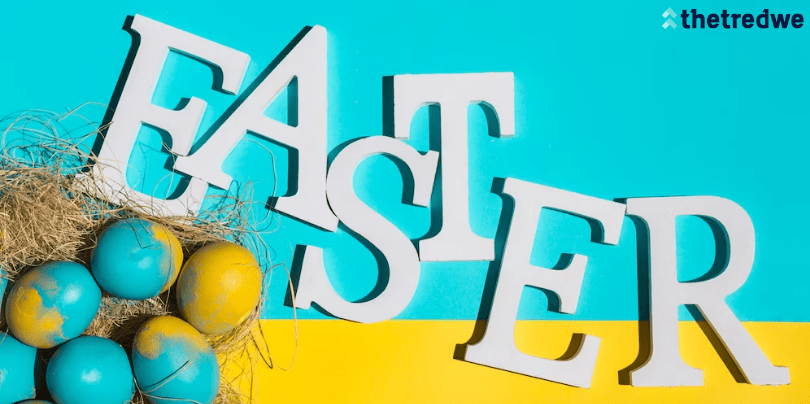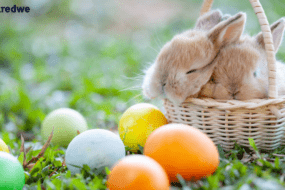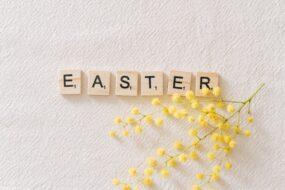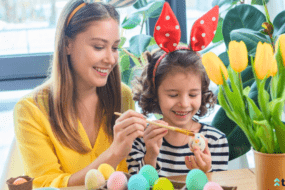
Celebrating a religious festival is unlike a regular cultural festival. Not only it has a deep historical root but operates a bit of distinguishable custom while practicing the adhesive rituals. The doctrine remains the same for all religious festivals regardless of country, religious belief, etc. So it is the same for Easter as well. However, being a pious festival among Christians, Easter has a bit complicated root with a very old history. Thus, some specific words are specially related to this day which unfolds its origin and reasons for commemorating it as a great festival. In this blog, we’ve specifically kept our attention on shelling out the 20 most used Easter vocabulary words and their significance.
20 Most Used Easter Vocabulary
There is a wide list of Easter words with vibrant meanings and significance. However, we’ve comprised the best 20 of all. So, know these are and pertinent significance.
1. Resurrection: Resurrection is the central event of Easter. It refers to the rising of Jesus Christ from the dead on the third day after his crucifixion.
2. Crucifixion: Crucifixion refers to the execution of Jesus Christ by nailing him to a cross.
3. Lent: Lent is the 40-day period leading up to Easter. It is a time of fasting, prayer, and repentance for Christians.
4. Holy Week: Holy Week is the week leading up to Easter. It includes the events of Jesus’ last week, such as the Last Supper, his arrest, trial, and crucifixion.
5. Palm Sunday: Palm Sunday is the Sunday before Easter. It commemorates Jesus’ triumphal entry into Jerusalem, where he was greeted by crowds waving palm branches.
6. Maundy Thursday: Maundy Thursday is the Thursday before Easter. It commemorates the Last Supper, where Jesus washed the feet of his disciples and instituted the sacrament of Communion.
7. Good Friday: Good Friday is the Friday before Easter. It commemorates the crucifixion of Jesus Christ.
8. Easter Sunday: Easter Sunday is the day when Christians celebrate the resurrection of Jesus Christ.
9. Egg Hunt: Egg hunts are a popular Easter activity for children. Eggs are hidden, and children search for them.
10. Easter Bunny: The Easter Bunny is a popular Easter symbol. It is said to bring Easter eggs and candy to children.
11. Easter Eggs: Easter eggs are a symbol of new life and rebirth. They are often decorated and used in egg hunts.
12. Easter Basket: An Easter basket is a basket used to collect Easter eggs and candy.
13. Sunrise Service: A sunrise service is a Christian worship service held early in the morning on Easter Sunday.
14. Easter Parade: An Easter parade is a parade held on Easter Sunday. It often includes floats, marching bands, and people wearing Easter bonnets.
15. Hot Cross Buns: Hot cross buns are a traditional Easter food. They are sweet, spiced buns with a cross on top.
16. Easter Lily: The Easter Lily is a symbol of purity and new life. It is often used as decoration in churches and homes.
17. Paschal Candle: The Paschal Candle is a large, white candle used in Catholic and some Protestant churches during Easter. It is lit on Easter Sunday and symbolizes the resurrection of Jesus Christ.
18. Alleluia: Alleluia is a word used in Christian worship to express joy and praise. It is often used during the Easter season.
19. Easter Vigil: The Easter Vigil is a Christian worship service held on the night before Easter Sunday. It includes the lighting of the Paschal Candle and the celebration of the resurrection of Jesus Christ.
20. Rebirth: Easter is a time of rebirth and new beginnings. It is a time to celebrate the resurrection of Jesus Christ and the promise of eternal life.
Last but not least, Easter is a holiday rich in symbolism and tradition. Whether you celebrate with an egg hunt, attend a sunrise service, or simply enjoy a day with family and friends, understanding the meaning behind these Easter vocabularies can deepen your appreciation for this important holiday.










